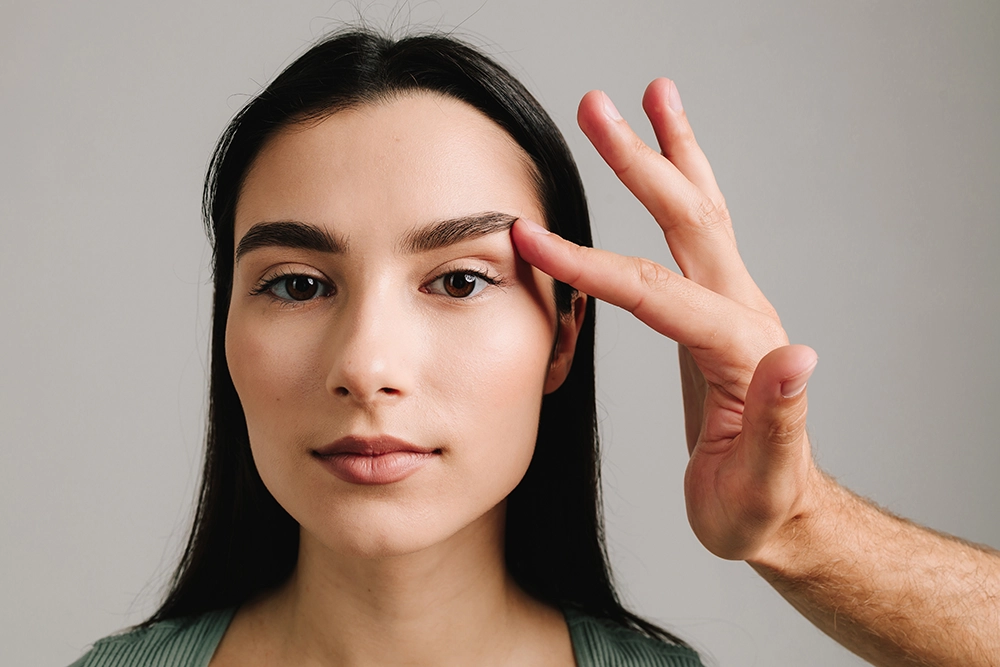Droopy Eye Lids

Droopy Eyelids: Causes and Treatment Options
The delicate skin around our eyes is one of the first places to show signs of ageing. And part of this may be the appearance of droopy eyelids. While this condition may be purely a cosmetic concern, in more severe cases it may interfere with your vision. Fortunately, a range of non-surgical treatments can help lift and rejuvenate your eye area—without the need for extensive downtime.
What are Droopy Eyelids (Ptosis)?
Droopy eyelids, or ptosis, refer to the sagging or downward displacement of the upper eyelid. This can occur in one or both eyes and may range from mild sagging to more pronounced drooping that partially obstructs vision. While some people are born with ptosis (congenital), it’s more commonly acquired with age.
Ptosis can not only affect how expressive your face looks but how light enters your eye and how comfortable your vision feels throughout the day.
Causes of Droopy Eyelids
Ageing
Muscle weakness
Neurological conditions
Injury or trauma
Genetics
Thankfully, not all droopy eyelids require surgery. Mild to moderate cases can often be addressed with non-invasive aesthetic treatments that tighten skin, add volume and rejuvenate the eye area.
Non-Surgical Treatments for Droopy Eyelids
Energy-Based Machines
Non-invasive devices such as HIFU (High-Intensity Focused Ultrasound) or ultrasound-based skin tightening systems can stimulate collagen production and gently lift the skin around the eyes. These treatments work by delivering focused energy into the deeper layers of the skin, prompting a healing response that tightens and firms sagging tissue over time.
Benefits:
- No needles or incisions
- Suitable for early signs of drooping
- Stimulates natural collagen remodeling
- Gradual, natural-looking results
Energy-based treatments typically take a few sessions, spaced weeks apart, with result improving over 2–3 months.
Dermal Fillers
Drooping around the eyes is often accentuated by volume loss in the temples, upper cheeks, and tear troughs. Strategic placement of dermal fillers in these areas can support the eye structure and reduce the appearance of sagging.
Benefits:
- Fillers restore volume and structure
- They “lift” the surrounding tissue, reducing droop
While fillers don’t directly treat the eyelid itself, they can effectively rejuvenate the surrounding area, making the eyes appear more refreshed.
Radiofrequency Treatments
Radiofrequency (RF) skin tightening is a non-invasive technique that uses heat to stimulate collagen and elastin production. RF treatments can firm the upper eyelid skin and elevate the brow area, improving the appearance of sagging eyelids.
Benefits:
- Comfortable, pain-free treatment
- No downtime required
- Can be combined with other treatments for enhanced results
What to Expect During and After Treatment
Here’s a general overview of what to expect throughout the treatment process:
Before Treatment
- Your doctorwill assess your drooping eyelid, facial anatomy and skin condition.
- Your doctor will create a personalised treatment plan based on the cause and severity of your ptosis.
During Treatment
- Most procedures last between 30 and 60 minutes.
- Your doctor may apply topical numbing cream for your comfort.
- You may feel warmth or mild pressure at the treatment area, depending on the method used.
After Treatment
- Minor redness or swelling may occur and typically resolves within hours to a couple of days.
- You should be able to return to work and daily activities immediately.
- Full results may take several weeks to show.
Choosing the Right Treatment Option
Not all droopy eyelids are the same, and treatment should be tailored to your needs. While you would need to see a doctor for a precise recommendation, here are some general pointers:
- Mild to moderate drooping: Energy-based treatments or dermal fillers may be sufficient.
- Volume loss and hollowing: Fillers may be necessary to restore structural support.
- Skin laxity: Radiofrequency or HIFU can firm and lift.
Combination cases: Patients may benefit from a multi-modal approach that lifts and restores volume.
Get Droopy Eyelid Treatment
If droopy eyelids are making you look older or more tired than you feel, it may be time to explore treatment options. At DermClear, we offer a range of non-surgical solutions to lift, tighten, and rejuvenate your eye area.
We believe in customised, subtle enhancements that respect your natural beauty while helping you look more refreshed and alert. Whether you’re just beginning to notice signs of sagging or have delayed treatment, we can guide you to the most suitable solution.
Don’t let droopy eyelids weigh down your confidence. Book a consultation with DermClear and let us help you achieve a brighter, lifted appearance.
Sculpt the Body You Want–Feel Confident in Your Skin
Our friendly team is looking forward to serving you. For urgent enquiries and appointment requests, please call the clinic directly.